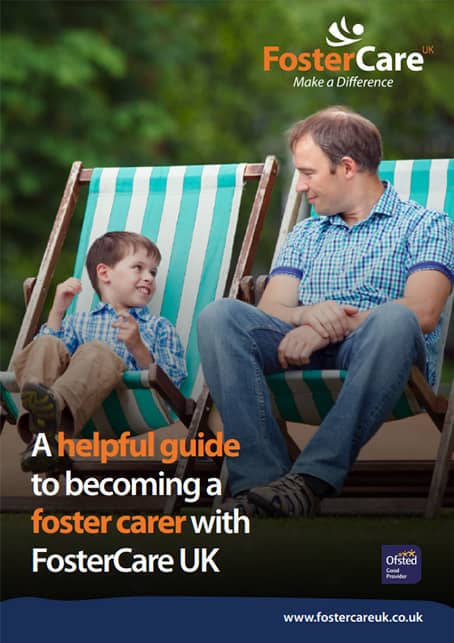


What happens when a child is taken into care?
Benefits of being a foster parent
What is a care leaver?
How to become a foster parent
How to foster a child
What are the foster care requirements
Can I choose who I foster?
Fostering with pets FAQ
How long does it take to become a foster parent?
What is the role of an independent fostering agency?
Fostering a disabled child
Tips for coping when foster placements end
Do foster carers pay tax?
What to expect in a fostering assessment
Common Fostering Challenges and Solutions
What disqualifies you from being a foster carer?
Muslim Fostering
Fostering as a single parent
Can you foster a child with a criminal record?
Can you work and foster?
Top 10 fostering myths
Can I foster if…?
Can I foster and rent?
LGBT Fostering: can I foster if I’m gay
Top transferable skills to become a foster carer
Can you foster with a mental health condition?
Christian Fostering
Sikh Fostering
Cultural Diversity in Foster Care
How to encourage foster children to read
Reasons for a child to be taken into care
Tips for coping with attachment disorders in Foster Children
Fostering vs Adoption
What happens when foster parents get divorced?
What is reunification in foster care?
How to deal with foster child bullying
A guide to the foster care handbook
Guide to fostering young children
Types of self-harm
A guide to fostering teenagers
What are the signs of depression in foster children?
When a child is placed in foster care, they can be placed in residential care or with a foster family depending on the child’s needs. In this guide, we’ll explain the difference between foster care and residential care and the reasons why a child may have been placed in residential care.
A residential care home or unit shares many similarities to foster care. They both aim to care for children who can’t live with their biological families and are a safe place for children to develop and grow in a loving environment. Most foster children will be able to go home after staying in a residential care home, but others can go on to live with fostering families. The main differences between foster care and residential care include:
There are a number of reasons that a child might be placed in residential care, although the preference is always to place a child with a foster family. Ultimately, the child’s well-being is the number one priority so, when a child is placed in residential care it can be for a number or one of the following reasons.
Sometimes situations can arise where a child might need emergency protection or support. It could be due to a number of reasons such as;
Due to the shortage of emergency foster carers, sometimes a child is placed in residential foster care because there is no other safe option for the foster child.
If you become a foster parent with Foster Care UK, you can choose to be on stand-by for emergency foster care as one of your preferences.
In a recent study by the Government, residential care was part of the intended care plan for just over half the amount of children in residential care. All the necessary preparations to move into a residential care home were made for almost four-fifths of the children.
The study found that the reasons for the planned move into residential care included the following reasons.
When fostering with a local authority, it can be more difficult to get support for children with more complex behavioural needs. Here at Foster Care UK, we’re able to provide more support for children who have experienced trauma, abuse or severe disruption in their lives through our Multi-disciplinary Assessment Treatment and Therapy Service (MATTs). Therapeutic foster care gives children who might otherwise be placed in residential care the opportunity to live in a family environment with increased mental health support. Through ongoing training as a therapeutic foster parent, you’ll be able to work within a wider team to provide an environment that can meet the emotional needs of the child.
The move from residential care to foster care can be difficult to navigate. With Foster Care UK, we provide support and guidance for both you and your foster child to help manage the transition. Some key pointers to remember include:
If you’re interested in becoming a foster parent, there are many different types of fostering including both long-term and short-term. For more information including what happens when a child is taken into care or to discuss the fostering process further contact our friendly and helpful team today.
If you’ve got any questions or would like to find out more about fostering with Capstone, fill out the form below.
An experienced fostering advisor from your local area will then be in touch.

Start the conversation today. Our team of friendly advisors are on hand to answer any foster care questions you may have. We can offer you honest and practical advice that can help you decide if becoming a foster carer is the right path for you.


